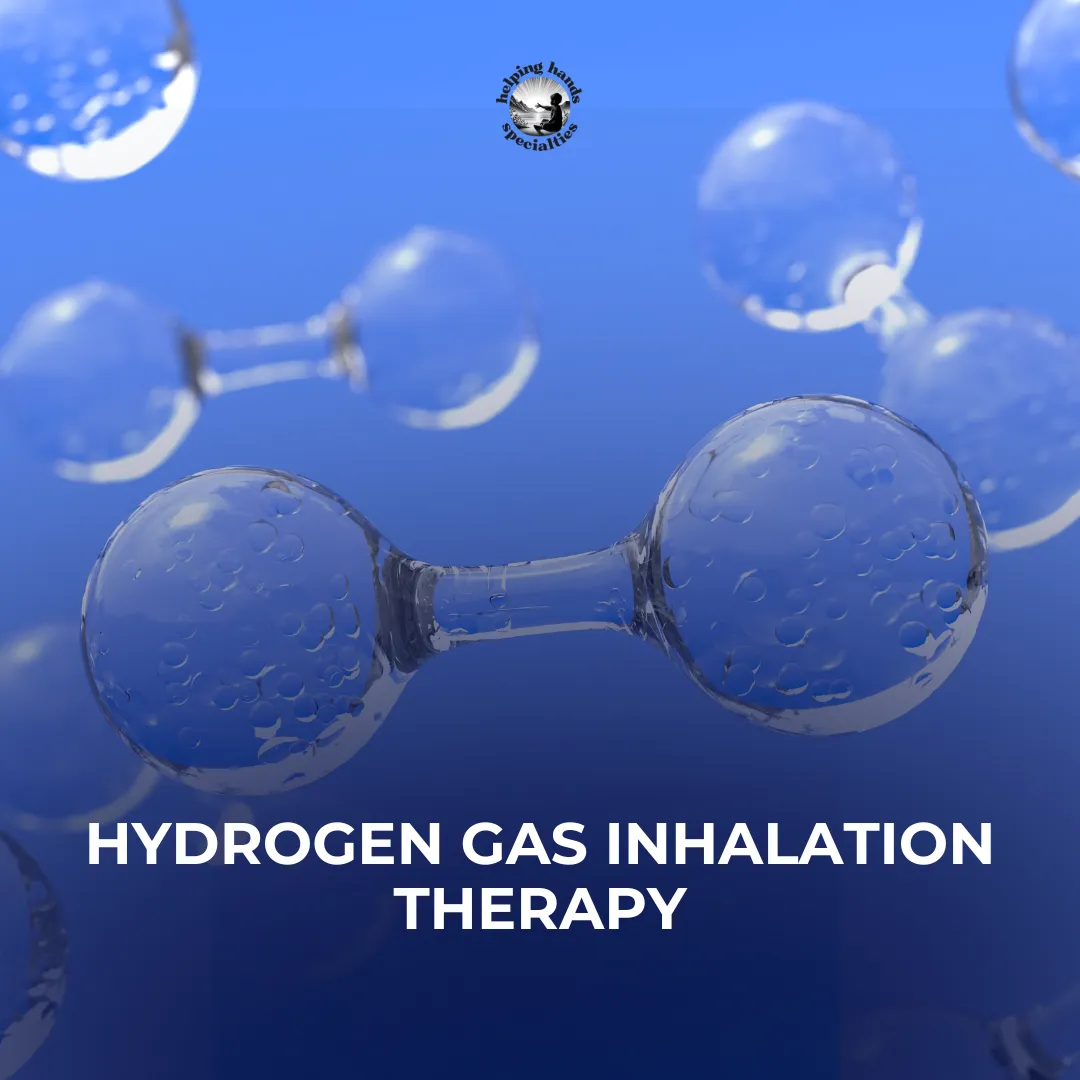Browse the Latest from Helping Hands Specialties Blog


Hydrogen Gas Inhalation Therapy: A Promising Approach for Alleviating ME/CFS Symptoms
Living with chronic fatigue can be debilitating, both physically and mentally. Myalgic encephalomyelitis/chronic fatigue syndrome (ME/CFS) is a complex condition characterized by unexplained fatigue and neuropsychiatric symptoms that significantly impact patients' quality of life. Traditional treatment options have often fallen short in providing relief for ME/CFS sufferers. However, recent studies have shed light on a potential breakthrough: hydrogen gas (H2) inhalation therapy. In this blog, we will delve into a fascinating case study that explores the efficacy of H2 gas inhalation in alleviating ME/CFS symptoms.

Portraying the Problem
ME/CFS remains a diagnostic challenge, and its exact cause is yet unknown. Numerous studies have revealed abnormalities in neuroimaging, blood markers, energy metabolism, and mitochondrial function in ME/CFS patients. These findings have led researchers to explore novel therapeutic approaches for managing symptoms and improving overall well-being.

Introducing the Solution
Hydrogen gas (H2) therapy has gained traction due to its antioxidant and anti-inflammatory properties. H2 acts as a selective scavenger of damaging reactive oxygen and nitrogen species, thereby protecting cells from oxidative stress and reducing inflammation. Preliminary research has shown promising results in various health conditions, prompting researchers to investigate its potential in alleviating ME/CFS symptoms.

Summary of the Study
A recent case study focused on four individuals diagnosed with ME/CFS aimed to evaluate the effectiveness of H2 gas inhalation therapy. These patients reported debilitating symptoms that included persistent fatigue, headache, muscle pain, disrupted sleep patterns, and the notorious "brain fog." As the study progressed, each patient inhaled H2 gas for a prescribed duration daily, and their symptoms were carefully monitored.
The study yielded remarkable results, demonstrating the potential of H2 gas inhalation therapy for improving the well-being of ME/CFS patients. Over the course of a few weeks, all four participants reported a significant reduction in fatigue levels, with renewed energy and improved cognitive function. Headaches and muscle pain, which often plagued their daily lives, were noticeably relieved. Sleep patterns stabilized, enabling better rest and rejuvenation. Most notably, the lingering "brain fog" that hindered their ability to concentrate or think clearly gradually dissipated.
Moreover, the benefits of H2 gas inhalation persisted beyond the initial weeks. The positive effects remained consistent over a duration of 8 to 9 weeks, indicating a sustained improvement in symptoms. This promising result paves the way for further exploration and the potential integration of hydrogen gas inhalation therapy into mainstream ME/CFS treatment.
Conclusion
While ME/CFS remains a complex and multifaceted condition, the potential of hydrogen gas inhalation therapy offers hope for those seeking relief from its debilitating symptoms. The findings from this case study provide compelling evidence that H2 gas inhalation significantly alleviates fatigue, headaches, muscle.
Take Action to a Healthier Life!
As we continue to learn more and more about the positive science behind hydrogen. We want to make sure we provide our readers with the best products possible. Click the link below If you would like to start your journey with the amazing health benefits of hydrogen!
- Hydrogen Water Inhalation 4 in 1 Device
https://healthyhydration.com/products/the-best-hydrogen-water-inhalation-device?ref=T6Z70EM_uvFRiG
- Hydra Shot 4 in 1 Starter Pack (Pre-Order Special)
https://healthyhydration.com/products/pre-order-bundle-pack-3-in-one-combo?ref=T6Z70EM_uvFRiG
Reference:
Get In Touch

